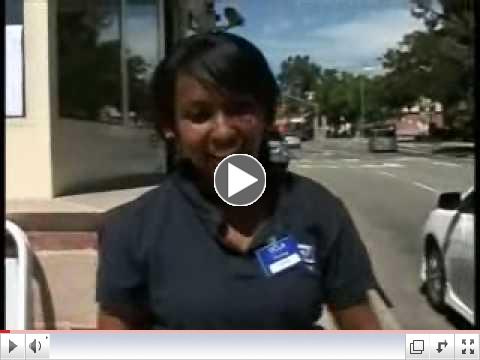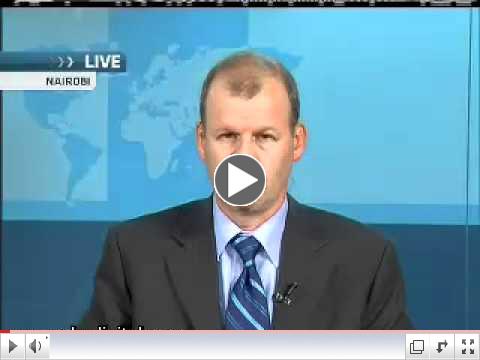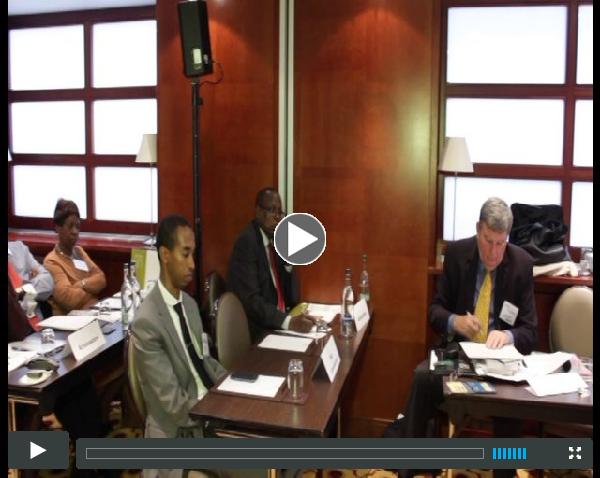Dear Stakeholders:
Emotions Don't Count, Capacity to Implement Solutions Change Does. Pointing Fingers is not Solution
Just scroll and rank your interests on the Agenda from Remittances, Continental Africa Diaspora: Africa's Secret Weapon ..all the interwoven themes.
You bet, the Decisions makers will get your recommendations.
Make your reservation, come to the table with your solutions. If you cannot make attend and Continental afar, the outcomes will be published and you can join a Caucus of your choice.
This program is organized by Indigenous Continental African Network - Diaspora Organizations - I CAN DO
http://archive.constantcontact.com/fs193/1105463482084/archive/1116918680282.html

Greetings and Good Cheer: African Union -Africa Diaspora LEGACY Projects Harnessing the Power of Continental Africa Diaspora
This is a historic rise to the moment with value and valor. Please, you may click on the links or videos for more insights. Be informed by the volume of researched information and knowledge gained, appreciate the cultural flavor, and enjoy the entertainment. Hope you have a better understanding of Continental Africa Diaspora's contributions to Africa's growth and evolution to self-reliance.
|
| | | Harnessing the Power of Continental Africa Diaspora for African Solutions with Continental African African Network Diaspora Organizations. Saturday March 29, 2014: 4:00pm to 9pm Venue: Courtesy the Embassy of Nigeria "The Giant of Africa" 3519 International Court, NW, Washington, DC 2008 H.E. Professor Ade Adefuye, Nigerian Ambassador
Reservation and dinner is just $11.24: RESERVE |
| Dear Member of the Five Regions in Africa: ECOWAS (West) EAC (East); SADC (South); CEMAC (Central); Maghreb (North) in the Diaspora and the AU's Sixth Region Dear Supporters of African Self-Empowerment.
Greetings: This is the first of its kind. The program is made for documentary to sensitize the community on the five African Union - Africa Diaspora LEGACY Projects and Role of Stakeholders. Further, the program educates the the African Union, the World Bank, International agencies on the unique and vital contributions of Continental Africa Diaspora's hometown, alumni and professional networks, and the value of indigenous expertise for a self-reliant Africa. Let us begin: Continental Africans constitute the most educated population in the United States. This fact is backed by by research and the US Census Bureau.  | | Africans highest achievers in US universities.wmv |
By using Prototype Presentations, this maiden program demonstrates the competencies of indigenous Continental African organizations and lay effective foundations that support the building of capacities and engaging the African Union, African governments at regional, national and local levels, and international institutions in promoting endogenous development. Endogenous development includes the stakeholders' visions, material resources, social capital and spiritual aspects of the people. Background of the Program African Union, World Bank and other global institutions recognize the enormous contributions and potentials of Continental Africa Diaspora in African Development. Continental Africa Diaspora ( hometown organizations and professional networks) were not engaged or consulted in the development of the African Union -Africa Diaspora Legacy Projects, which were hosted by the World Bank: Click The articulated goals of the program are: 1) highlight the unique strengths and contributions of Continental Africa in African development, which surpass foreign aid; 2) provide critical information to community stakeholders on the AU - Diaspora Legacy Projects and their impacts; 3) develop proactive and constructive working relationships between Continental Africa Diaspora and the Office of the African Union Ambassador to the United States, African Embassies, and African Union; 4) create sustainable foundations for partnerships. The impact objectives: 1) identify indigenous networks to enhance communication and collaboration among organizations in order to maximize resources for common outcomes; 2) enhance community knowledge on the five AU - Diaspora Legacy Projects; 3) improve reliable avenues to a) inform African governments and the African Union Commission on available African expertise, accomplishments of hometown, alumni and professional groups in order to leverage the resourcefulness for African development b) receive timely information from African governments and the African Union, c) facilitate mutual engagements between the African Union Commission, the five inter-governmental regions and their members in the Diaspora. See the action agenda below:  | | Improved macroeconomic policies across Africa |
Home-town, cultural, alumni associations, indigenous African organizations and professional experts and networks are contributing to improve growth and opportunities in Africa. The Defining Innovative and Interactive Agenda 1) On Your Money: The African Remittances: Welcome the Gentleman Elder: Dr. Chika Onyeani, the former Chairperson of the African Union Diaspora Task Team and a host of African experts on money and banking will provide an interactive insights on one of the five Legacy Projects: African Institute for Remittances.  | | African Institute for Remittances (AIR) |
To be Launched in 2015 and hosted in Kenya. What is AIR? How did it come about? What are the concerns and benefits? How can any drawback be redressed? How can Africa self-manage the process and use the reduced fees to implement developments? To be prepared, you may download the official African Union document on AIR: Click Continental Africans contribute an estimated $120 billion in annual resources in Africa, which surpasses foreign aid. The estimated $60 billion in remittances through known entities like Money Gram, Western Union, which the World Bank used in its reporting, is only half the story as the researchers admit. The direct remittances sustain families and redress poverty. This insightful exchange takes your voice to African governments, the World Bank, the European Union on the African Remittances. Without you, there is no Money. Therefore, bring your solutions on how your money can be managed. The compiled information will be presented to the African Union Commission on the Ways Forward. Click 2)Africa's Secret Weapon, the Power and Potentials of Continental Africa Diaspora. The Contributions of Indigenous Organizations toward African Development Branding Indigenous Expertise. What have not been researched and sensitized are project-based contributions undertaken by home-based cultural organizations, alumni and student associations that range from education, including scholarships; social infrastructure developments such as clean water; health facilities to micro enterprises. In July 2013, the Chairperson of the African Union indicated that 17% of foreign project investments come from Africans to Africa....surprise, surprise! Recently, the African Diaspora Bond for Africa's Welcome to the Prototype Showcase, which demonstrates the structural knowledge and competitive advantages of hometown and professional networks and how they are engaged in improving African societies: From Micro-economic projects, Health, Education, to Social infrastructure development. These proven models of self-reliant developments can be replicated locally, regionally and continent-wide. The Segment will educate and sensitize policy makers and international partners with empirical evidence of why and how the harnessed contributions and potentials of Continental Africa Diaspora should be factored in polices and reflected in development. The inclusions require the need to recognize and prioritize the capacities of indigenous Continental Africa Diaspora organizations by African governments, the World Bank, and other international agencies in the decision making process as well as in the management of developments and accountability. Africa cannot be self-reliant through dependency is the guiding approach. Indigenous groups are encouraged to send information on their organizations with documentation of accomplishments to I CAN DO - Indigenous Continental African Network - Diaspora Organizations. Please send your email and attachments to africanservices@aol.com 3) Engaging African Union and Africa Governments on the Brain Gained and Circulation. Home-based and professional Networks in the Diaspora experience official barriers "red tapes" in providing solutions to development in Africa. The barriers range from inaccessible officials to cost prohibitive measures that hinder non-profit services, investments or any business development. The Segment highlights the need to remove disincentives in order to reverse brain drain to brain drain" that is available. The conscious, concerted, and committed efforts of the African Union and African governments are highly desirable in promoting the flow and circulation of intellectual capital, transforming socioeconomic resourcefulness to applied solutions, and creating mutual avenues for collaborations. 4) The Benefits of Dual Citizenship / Voting Rights for Self-Reliant Africa: Dual Citizen and Voting Rights are issues shared across Continental African populations. Some African nations allow Dual citizenship and/or Voting Rights while others do not. Obtaining the citizenship in the country where Continental Africans live is a product of migration and Africa benefits from her emigre population. Losing citizenship robs Africa of her talents. The presentation summarizes the benefits of retaining the citizenship of the country of origin and initiates collaborative platforms to advance the cause. 5) Transnational Continental African Identity: The Regions: Strength through Identification is a welcoming manifestation and cultural resilience is a critical factor in development. This Segment is significant in demonstrating the inherent, direct and unbroken ties that African immigrants maintain in Africa, which naturally account for stakeholder obligations and loyalties beyond interests in development. Other transnational communities that are influenced by daily migrations and related issues, such as the Jews, Hispanics and Asians, effectively address the obligations. The Segment realistically offers solutions to constructive outreach and collaboration between the African Union and the Diaspora. All stakeholders should be included without unnecessary and arbitrary contradictions that hinder progress by ignoring realities. Given the fact that Africa has five geographical regions, members of the Diaspora from the regions are directly associated with, and contributing to, their zones. Moreover, the policies of the respective regions and member states of the AU have direct impacts on their Diaspora members. It is, therefore, practical to acknowledge the patterns, orientations and identities of different stakeholders, which influence priorities. The practical approach to developments maximizes opportunities and help stakeholders to actualize their potentials. For examples: 1) CEMAC Diasporans have a common passport; 2) EAC proposes same with common currency; 3) ECOWAS Region held its 2nd Annual ECOWAS Diaspora Forum in October 2013 with ECOWAS Ambassadors in the US and the ECOWAS Commissioner, Mr. Kadre Desire Ouedraogo (from Benin). The Southern African Community (SADC Region) will share teachable lessons on how Continental Africa Diaspora maintains its regional identity within the five regions. The Sixth Region is a commendable inclusion of all people of African descent and anyone who calls Africa home with Africa at heart. This, logically, goes beyond the color lines because there are White Africans and other races in Africa.
Creating synergies and partnerships among stakeholders to meet common aspirations and goals is a win-win proposition. Therefore, recognizing distinctive orientations and appreciating the tapestry of diversity are not divisive in nature. 5) Civic Awareness and Community Collaboration for Community Empowerment. How does Continental Africa Diaspora influence and improve outcomes? No community can be a force to be reckoned with without its ability to address issues that affect the community. Therefore, civic engagement is key to bring about desired change. The combined |
| | | |
![]()
![]()


![]()








